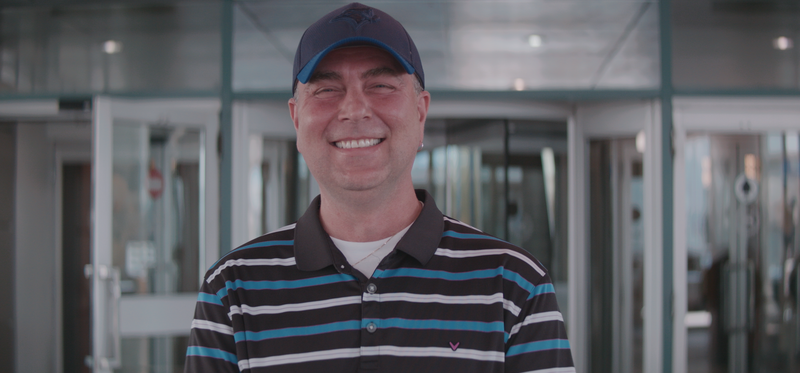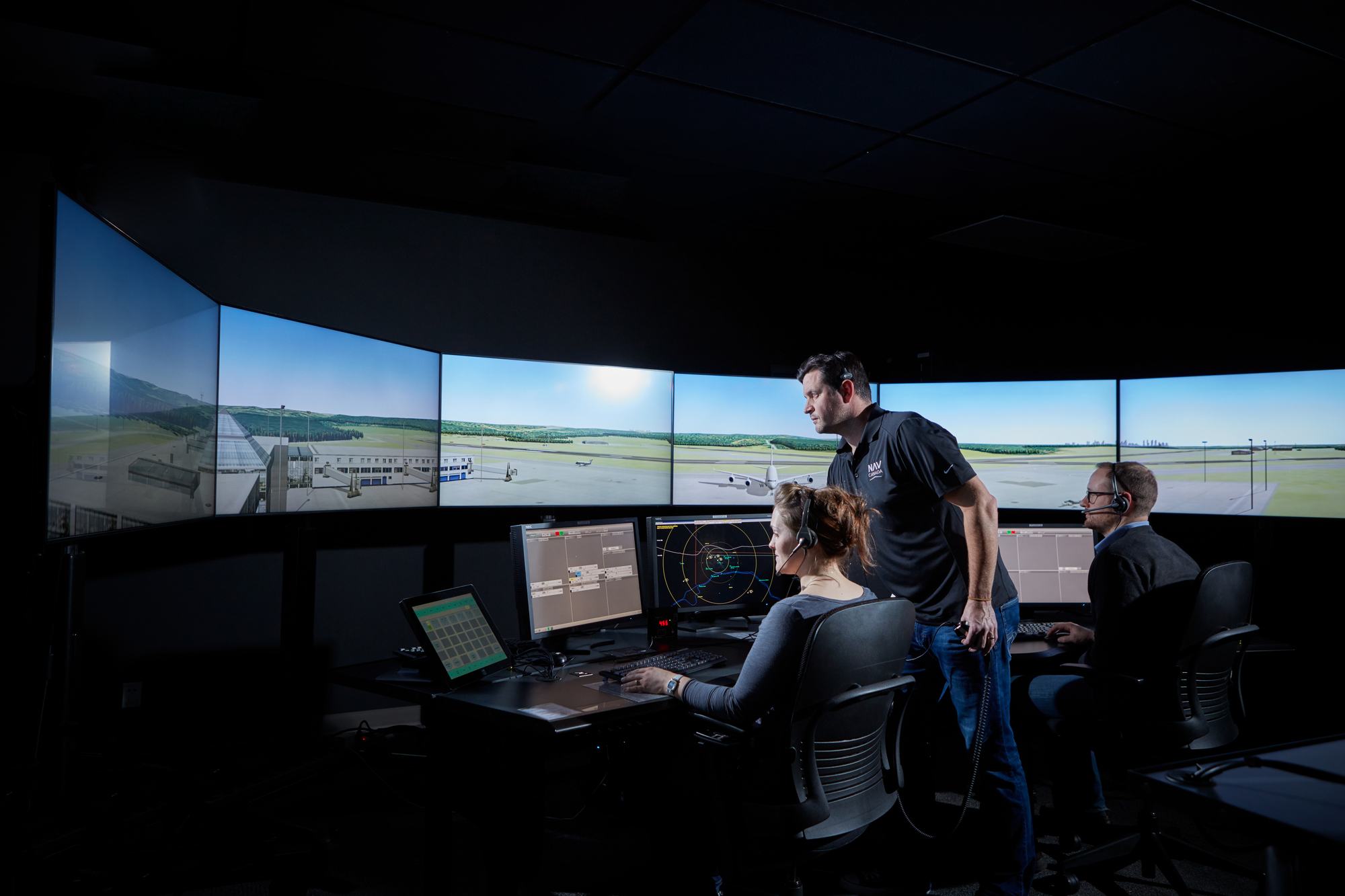







October 7, 2022
Often topping the charts as one of the most stressful jobs in the world, air navigation service professionals support the movement and direction of thousands of people and goods on commercial and general aviation aircraft every day.
With more than 30 years’ experience working as an Air Traffic Controller in Gander, Newfoundland, Dennis Mitchell is all too familiar with managing stressful situations on the job. “When an aircraft is in trouble, your stress levels can go from zero to 100 very quickly,” explains Mitchell. “The number of pilots I speak to can vary greatly from one day to the next, so I always need to be alert and focused to ensure all the aircraft in our airspace make it safely to their destinations.”

Dennis Mitchell has been an Air Traffic Controller since 1991. Having benefited from NAV CANADA’s peer support programs himself, he has also been a mentor and leader with multiple mental health and wellness programs offered by the Company.
While the majority of the aircraft Mitchell speaks with in Canada’s airspace fly their route as planned, when something unexpected comes up, Mitchell says he relies on his training and support from colleagues to navigate stressful situations.
“A few years ago, a pilot informed me that an infant on their plane was having a medical emergency. I remember feeling my body temperature rise and anxiety levels building up as I wanted to do everything I could to get that aircraft on to the ground safely. Fortunately, I was able to draw on my experience and help from my team to ensure that everything went perfectly from an air navigation service perspective and that child was able to receive medical attention as quickly and safely as possible.”
Knowing that challenging situations can arise at any time for air navigation service professionals, NAV CANADA has created several programs to ensure that the people who help to keep Canada’s skies safe also have the support they need to keep themselves safe.
“It all begins with our training programs,” says Kelly Ryan, Manager of Organizational Health at NAV CANADA. “Before independently communicating with pilots, our air traffic controllers and flight service specialists spend one to three years in training, depending on their chosen role and airspace.”

NAV CANADA control tower simulator.
Learning how to drive a car can be a stressful experience for many people, explains Ryan, but with the right training, practice, and experience, drivers gain confidence in their skills and learn to travel with ease. The same is true for air navigation service professionals. With the right education, support and guidance, trainees graduate from their programs and begin advising or guiding aircraft crossing Canada’s skies.
In addition to the rigorous training and services available through NAV CANADA’s benefits program, all employees, including technical services technologists, and people working in business and operational support roles, have access to the following peer support programs.
“To paraphrase Noam Spencer, PhD, we believe that mental health is not a destination, but a process and no one should suffer in silence,” says Ryan. “For this reason, our programs are constantly evolving to meet the needs of all employees at every stage of their career with our Company.”
From Dennis Mitchell’s perspective working on the frontlines of the aviation industry, nothing is too small to talk about. “It’s not selfish to take care of yourself. You need to give yourself the same care and attention you give to others,” he says. “One of the most valuable lessons I’ve learned is the importance of opening up and sharing your experiences with other people. Every time I share my story, I feel like a weight is being lifted off my shoulders. It’s inspiring to help people and to let them know that they’re not alone.”